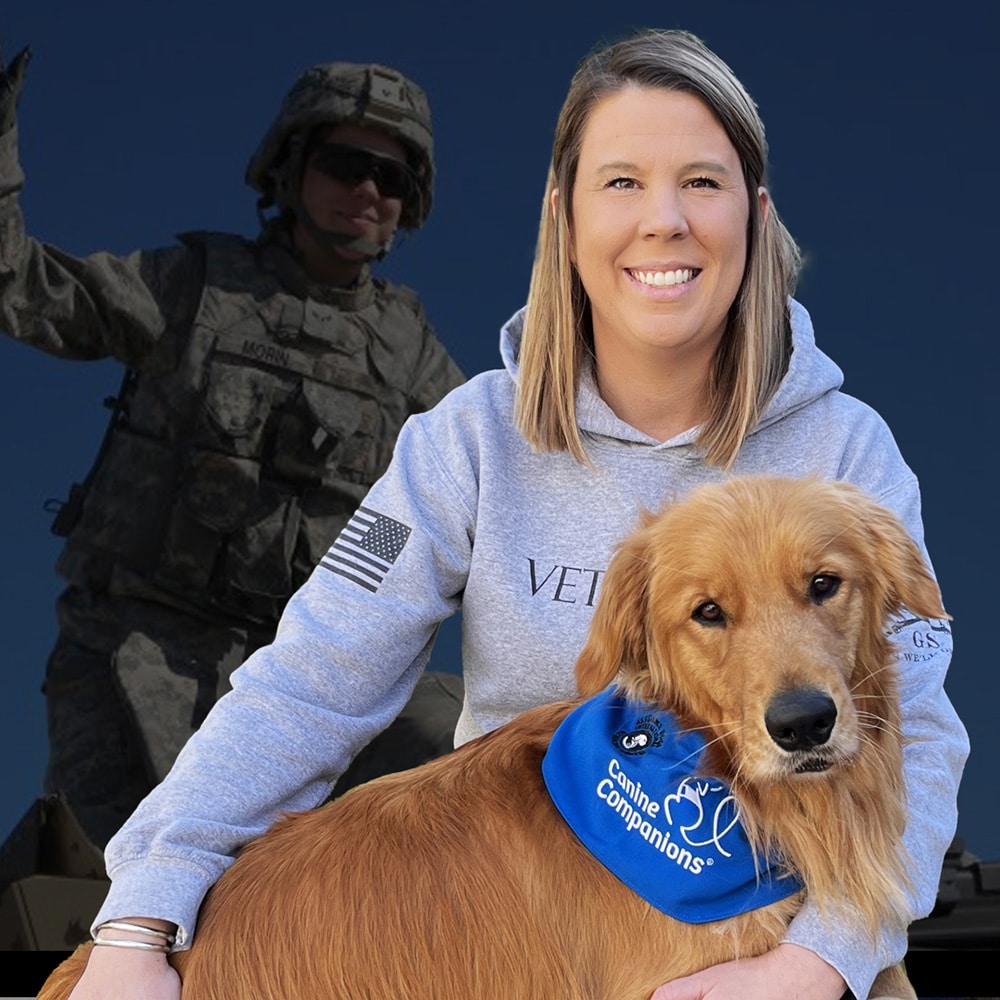
“Some days, I thought I was okay again. Then, as I was getting ready for bed, the anxiety would creep in. Every night without fail I had just horrific nightmares. Nothing was helping.”
Deployed in a joint operation with the Army at Camp Phoenix, Afghanistan, U.S. Air Force veteran Karen Steelman was tasked with working with the Afghan national police. She was in a convoy that would go off base to work on warehousing, water and electricity projects.
Her convoy had just come through the gate to base when there was an explosion. Shrapnel flying, Karen’s protective vest was forced against her abdomen, triggering an existing medical issue. She was medevaced for treatment. However, this incident wasn’t the only event that left her living with severe post-traumatic stress disorder (PTSD) – she survived multiple sexual traumas during her service.
“I ended up self-medicating,” Karen says of returning to civilian life. “I didn’t realize how much I needed help.”
“Trapper’s training in nightmare and anxiety interruption has allowed me to rely on him – not another human – and be happier and more confident.”
U.S. Air Force veteran Karen Steelman
For 14 years, Karen didn’t sleep through the night. She knew as soon as her eyes closed, the nightmares would start again. She didn’t leave her bed most days, except to care for her children. Someone had to accompany her to public places.
Luckily, Karen found Canine Companions. She hoped a service dog could provide the security she needed both at home and in public, and maybe, she could get relief from her night terrors. Service Dog Trapper did just that and saved her life.
“Without Trapper, I would still be a shell of myself. I wouldn’t have the confidence I needed to give life the justice it deserves,” Karen states. “Trapper’s training in nightmare and anxiety interruption has allowed me to rely on him – not another human – and be happier and more confident.”
Trapper has figured out how to prevent Karen’s worst nightmares. On good nights, he stays on his own bed. When nightmares do occur, he knows to place his body firmly against Karen’s to reduce the severity. While PTSD is still a challenge, life is looking brighter for Karen, thanks to Trapper.
Karen urges other veterans: “If you need the help, don’t be afraid to ask – it’s going to change your life.”


